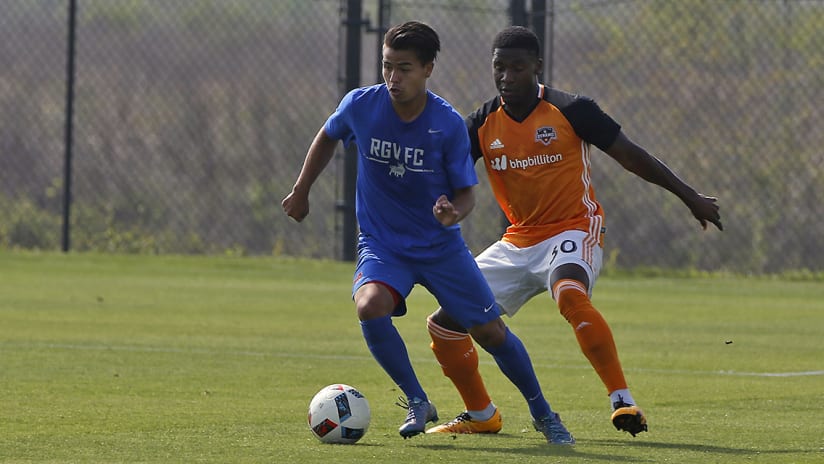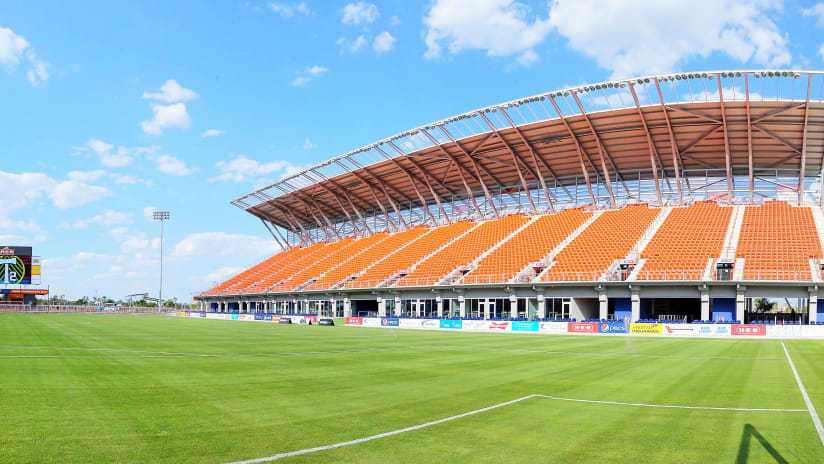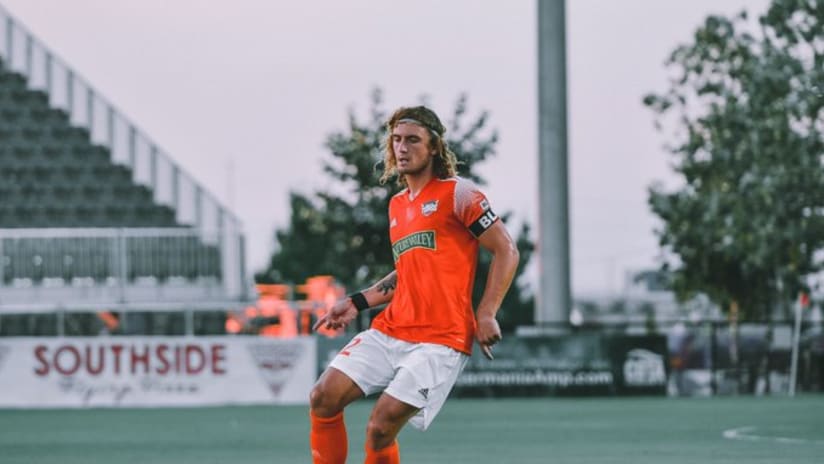The Rio Grande Valley FC Toros will not participate in the U.S. Open Cup, following the precedent set by eight other American-based MLS clubs that own and operate a second club in the USL. On January 7, U.S. Soccer announced changes to team eligibility policy for the U.S. Open Cup.
The new policy stated, “Any Outdoor Professional League Team that is majority owned by a higher-level Outdoor Professional League Team or any team that is (1) majority owned by an Outdoor Professional League Team, (2) registered with any Open Division League, and (3) registered as a professional team, will not be able to take part in the Open Cup.”
Under that policy, eight current MLS clubs with a second team in USL were affected: Bethlehem Steel (Philadelphia Union), LA Galaxy II, Real Monarchs (Real Salt Lake), Portland Timbers 2, Seattle Sounders 2, Swope Park Rangers (Sporting Kansas City), New York Red Bulls II and Orlando City B.
Rio Grande Valley FC, the new hybrid affiliate of the Dynamo, were not included in the January announcement, because while the Dynamo control all technical aspects of the club, including the construction of the roster and the coaching staff, the team is owned by Alonzo Cantu, owner of the Rio Grande Valley Vipers.
The hybrid affiliation is the first in MLS, a unique relationship that involves a separate business entity. But from a practical soccer perspective, the RGV FC Toros are no different than LA Galaxy II, Orlando City B or any other USL club owned and operated by an MLS club.
U.S. Soccer made a slight change to the policy on Monday, "forbidding any Outdoor Professional League Team whose player roster is managed by a higher-level Outdoor Professional League Team from participating in the tournament." The update brought RGV FC under the same umbrella as the eight other MLS-owned and operated USL clubs in the United States. In essence, a technicality was corrected. Two coaching staffs in regular communication, sharing the same technical goals and building a shared pool of players would be uneasy competing in a cup competition.
The Dynamo gain no competitive advantage from this change in policy. Only Dynamo players under MLS contract can compete in U.S. Open Cup matches. Of the 15 players used by RGV FC in Saturday’s inaugural match, only two – Christian Lucatero and Bradley Bourgeois – would be eligible to play for the Dynamo in the U.S. Open Cup, as they both have MLS contracts and are currently on loan with RGV FC.
“We respect the decision taken by the U.S. Open Cup Committee with regards to RGV FC not participating in the competition,” Dynamo general manager Matt Jordan said in the club's statement. “This ruling is consistent with how the Committee views other MLS operated USL teams and thus did not come as a surprise to us.”
For many reasons, most notably the long-term goal of building a soccer structure from the Dynamo Academy through the Dynamo first team, the club wants RGV FC viewed the same way as the other MLS-operated clubs within USL.
Rio Grande Valley FC competing in the U.S. Open Cup could result in a conflict of interest, with a possible matchup against the Dynamo being one example. The hypothetical matchup would likely happen sometime in the near future, with the Open Cup utilizing a regional format in which teams are paired geographically from the first round through the fourth round, when MLS teams enter the competition. The Dynamo have met at least one Texas rival in each of the last five years, including Austin (USL) in the fourth round in 2015 and the Laredo Heat (PDL) in 2014.
“If we were drawn against each other, we’d play against our own team,” Dynamo head coach Owen Coyle said. “Back home (in the United Kingdom), a reserve side doesn’t play against their own team (in Cup competition), for obvious reasons.”
“Our view of our relationship with RGV FC is the same as every other team in MLS with a second team. It was really a non-story for me, because it was the same as everybody else. If we’ve been asked the question, then everyone else should be asked the question, because we’re all under the same jurisdiction. We are all at the same club and part of the same group. To play against each other is the last thing you need. God forbid, somebody gets injured, and then somebody within your own club would feel really bad about it.”



